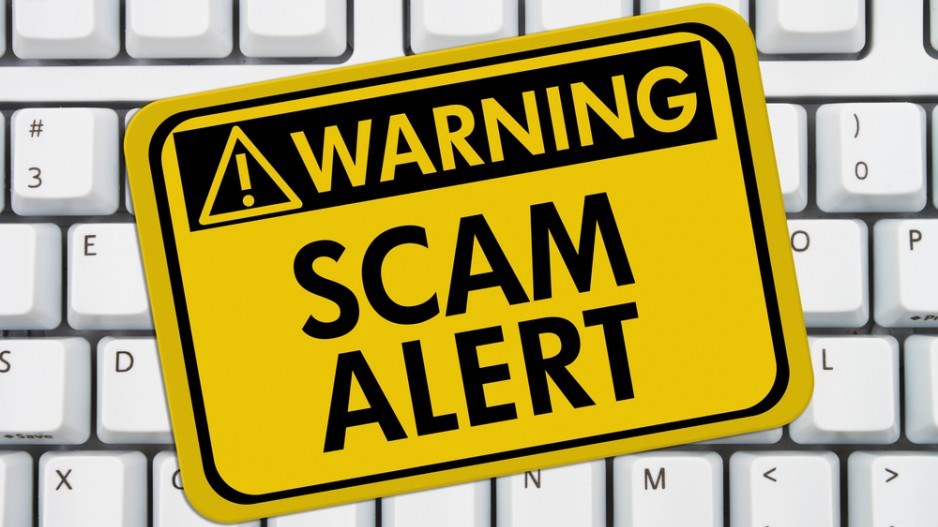Crimestoppers is warning people not to fall for one of the many COVID-19 hoaxes doing the rounds at the moment.
The organization has released a raft of advice and is offering rewards for tips that lead to the arrest of the perpetrators.
With misinformation abound during the pandemic, there is ample opportunity for fraudsters to take advantage of unsuspecting targets, especially elderly victims, who may be more trusting.
And with March being Fraud Prevention Month in B.C., Metro Vancouver Crime Stoppers is warning people to look out for financial scams, cyber-fraud, fake CRA phone calls and other crimes that are exploiting fears over the virus.
The Canadian Fraud Centre is maintaining a national running list of COVID-19 scams which includes:
Duct cleaning companies offering services or “special” filters to protect from COVID-19.
Utility companies threatening to disconnect power for non-payment.
Centers for Disease Control and Prevention (CDC) the World Health Organization (WHO) selling fake lists of COVID-19 infected people living near you.
Offers of fake COVID-19 tests, which are only administered by health authorities.
Public Health Agency of Canada allegedly asking for your health card and credit card numbers for a COVID-19 prescription.
Charities like the Red Cross offering free medical products (e.g. masks) for a donation.
People selling household decontamination services door to door.
“Fraud is as much a crime as any other, yet only five per cent of the tips Crime Stoppers receives relate to fraudulent crime,” said Linda Annis, executive director of Metro Vancouver Crime Stoppers.
“Fraud costs Canadians millions of dollars and criminals shouldn’t get away with it.
“If you call us and pass on information on a fraudulent crime, we guarantee you will be totally anonymous, never go to court and could be eligible for a cash reward.”
Additional warnings have also been issued by international agencies including INTERPOL. Some examples:
Fake shops, websites, social media accounts and email addresses – offers of masks and other medical supplies for sale have sprung up online. Unsuspecting victims who order from fraudulent ones never get their goods and see their money disappear.
Impersonating legitimate companies - using similar names, websites, email addresses and messages on social media platforms. This includes the World Health Organization (WHO) which has issued a warning of its own.
Fake charity appeals - attempts to get the recipient’s money allegedly to fund vaccine for children in China. There is no vaccine yet for the novel coronavirus.
Telephone fraud – Interpol says criminals may call pretending to be clinic or hospital officials and claim that a relative of the victim has the virus and needs money for medical treatment.
Phishing – emails claiming to be from national or global health authorities ask victims to provide financial details, or open an attachment containing malware.
Be wary of unsolicited emails offering medical equipment or requesting your personal information for medical checks. Legitimate health authorities do not contact the general public in this manner.
Beware of bogus websites – criminals will often use a web address which looks almost identical to a legitimate one, e.g. “abc.org” instead of “abc.com”.
Check out online reviews of a company before making a purchase.
Be wary if asked to make a payment to a bank account located in a different country than where the company is located.
If you believe you have been the victim of fraud, alert your bank immediately so the payment can be stopped.
Anonymous tips may be provided though Crime Stoppers’ downloadable “P3” app for Apple and Android phones, calling Crime Stoppers at 1-800-222-8477, online at solvecrime.ca, or by following the link on the Metro Vancouver Crime Stoppers Facebook page.
Metro Vancouver Crime Stoppers accepts tips in 115 different languages and will pay a reward of up to $5,000 for information leading to the arrest of a criminal, recovery of stolen property, seizure of illegal drugs or guns or denial of a fraudulent insurance claim.
Tipsters stay anonymous by using code numbers to check back later and collect their rewards.



